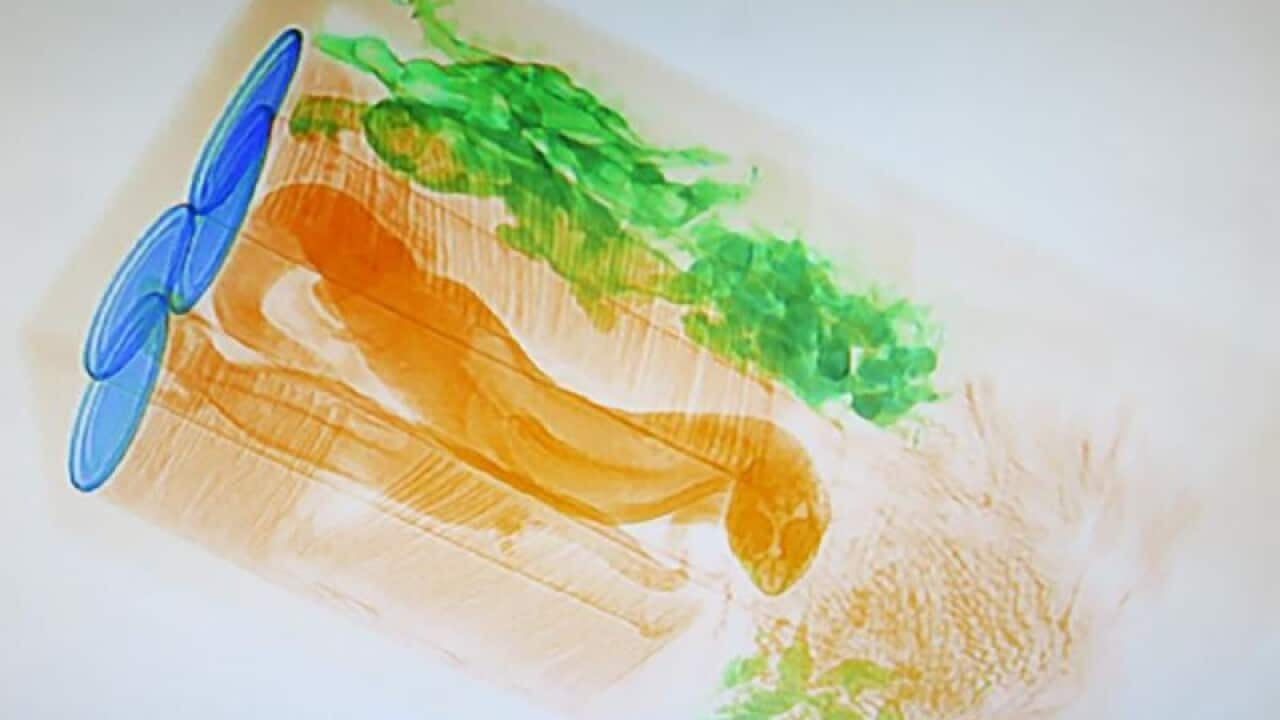More than 100 native reptiles, some of which were stuffed in socks and labelled as bags of chips, have been stopped from illegal export.
The international mail parcels were mainly posted from Melbourne or Sydney and destined for China, Hong Kong, Indonesia and Russia.
The 20 consignments, containing more than 110 native reptiles, were stopped by Australian Border Force officers in the last three months.
Shingleback lizards, eastern spiny tailed skinks, geckos, blue tongue lizards and gidgee skins were among the species found.
Some reptiles were found stuffed in socks within cereal and chip boxes, while others had their legs taped together, the ABF said.
Eight packages were intercepted in July, with six consignments in one week alone, in boxes labelled as toys, kids, baby clothes and shoes, school bag and bags of chips.
The detections have been referred to state and federal agencies for further investigation.
ABF Acting Assistant Commissioner Craig Palmer said the detections serve as a warning to wildlife smugglers.
"Wildlife smuggling is a lucrative trade and we know individuals and criminal syndicates can make significant profits by exporting and selling Australia's unique native fauna overseas, particularly in Asia," he said.
Mr Palmer said the force is committed to protecting native wildlife and is working closely with state and federal agencies to detect, disrupt and investigate people involved in the cruel trade.
"We are working with our colleagues at Australia Post, industry, consumer groups, as well as federal and state environment agencies, to increase our ability to identify who is involved and where they are sending these animals," he said.
"If successfully exported, these animals are fed into illicit markets that are of significant interest to law enforcement overseas, particularly in Asia."
Mr Palmer said working with its regional partners is a key part of combating the issue.
The maximum penalty for wildlife trade offences under Australian law is 10 years' jail and a fine of up to $210,000 for individuals or up to $1.05 million for corporations.
Share

